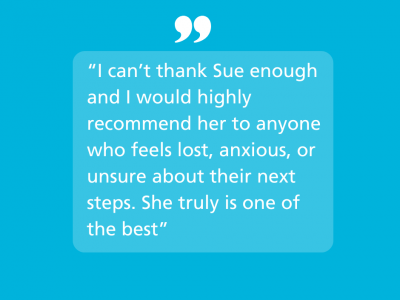- Home
- Anxiety
- Depression
- Emotional Eating
- Living with a long term health condition - Our Talking Health team
- Loneliness
- Menopause
- Mindfulness
- Obsessive compulsive disorder (OCD)
- Panic Attacks
- Phobias
- Pregnancy & Parenthood
- Prolonged Grief (Grieving)
- PTSD
- Sleep Difficulties
- Stress
- Veterans mental health
- Needs We Can and Cannot Meet
- Cognitive Behavioural Therapy (CBT)
- Eye Movement Desensitisation & Reprocessing (EMDR)
- Employment Support
- Counselling for Depression
- Online Self-help
- Mindfulness
- Wellbeing Workshops
- Join the team
- What to expect at your first appointment
- Testimonials
- Talking Health team
- Learn about mental health
- FAQs
- Mental Health Resources
- Blog
- Video Appointments
- Supporting someone through TALKWORKS: A guide for carers and loved ones
- Your feedback
- Making contact if you are deaf
- I need help now
Access support from TALKWORKS
Self-refer to TALKWORKSAccess support from TALKWORKS
Self-refer-
What we can help with
- Anxiety
- Depression
- Emotional Eating
- Living with a long term health condition - Our Talking Health team
- Loneliness
- Menopause
- Mindfulness
- Obsessive compulsive disorder (OCD)
- Panic Attacks
- Phobias
- Pregnancy & Parenthood
- Prolonged Grief (Grieving)
- PTSD
- Sleep Difficulties
- Stress
- Veterans mental health
Access support from TALKWORKS
Self-refer to TALKWORKS - How We Can Help You
- About Us
- Useful Resources
- Get in touch
- Self-refer
How does a lack of sleep affect your mental health?
Lack of sleep can affect everyone from time to time, yet sleep is an essential part of feeling well and happy. Most of us can relate to having a bad night’s sleep and the effects of it the day after. Feeling tired, unfocused, and at times annoyed with ourselves for not being able to get to sleep, can all impact how we feel.
If you are struggling with lack of sleep, you are not alone. One in three of us are affected by poor sleep which can be linked in some ways to our mental health. Disruption and a lack of sleep are common and can be made worse at times when you are feeling emotionally overwhelmed. It’s important to remember that if you are finding it hard to sleep and you are experiencing mental health difficulties as a result of it, services like TALKWORKS can help you.
Why might your sleep be affected?
If you are experiencing mental health difficulties this can affect your sleep and its quality. A lack of sleep can also have an effect on our mental health as we worry about our sleep, it can affect the way we cope with our day-to-day life and routine causing emotional stress and anxiety. There are a number of different reasons why our sleep can be affected, including:
- How we are feeling can impact our sleep. Anxiety or stress, replaying the day’s events or worrying about a future event can all interfere with your sleep.
- Low mood and feeling unmotivated can lead us to feel more tired and sleep at different times of the day, which then interferes with our nightly sleep pattern.
- Common causes like medical problems or being in pain
- Environmental factors such as a noise, or a light or hot room, or an uncomfortable bed.
- Alcohol, drugs and caffeine can also impact on our sleep.
How do sleep difficulties link to our mental health?
Just as symptoms of anxiety or depression can affect our sleep, having less sleep can make managing our mental health difficult as well. Not having good quality sleep makes carrying out our day-to-day activities challenging and has an impact on how we feel.
How can I improve my sleep?
There are a number of ways that you can improve your sleep, including:
- Keep the temperature in your bedroom comfortable (we recommend around 18°c)
- Make sure your bedroom is dark enough to sleep in
- Try to keep the bedroom quiet. If this is difficult, consider using ear plugs to avoid being woken.
- Use your bed for sleep purposes only
- Switch off stimulating activities before bed such as playing computer games, scrolling through your mobile phone or watching an exciting film or program on the television.
How can TALKWORKS help?
Here at TALKWORKS, we understand how a lack of sleep can impact your mental health. We’re an NHS Talking Therapy Service, based in Devon, here to help you improve your mental and physical wellbeing. We offer one to one sessions with a therapist, and group therapy through our TALKWORKS For Improving Sleep wellbeing workshop. During the workshop, you will learn some handy tools and techniques to help you get a better night’s sleep. It is a free workshop available to anyone over the age of 18 living in Devon (with the exception of Plymouth). You will learn more about:
- The science of sleep
- Common sleep problems and their causes
- Quality of sleep vs quantity
- Evidence-based ways of improving sleep
If you are looking for some support with improving your sleep or wellbeing, you can self-refer to TALKWORKS today online or over the phone. You can also book onto our wellbeing workshop by calling 0300 555 3344.
Remember, anyone of any age or lifestyle can have difficulties sleeping. You are not alone in this.
Related Posts

Charlie thanks Sue for the employment support she received
Posted by Admin on 1 December, 2025
.png)
Simone shares her story and thanks TALKWORKS
Posted by Admin on 9 December, 2025

